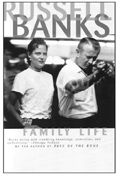Outer Banks (50 page)
Authors: Russell Banks

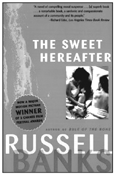
“The characters are rendered with such cleareyed affection, the central tragedy handled with such unsentimental artistry, the wonderfully named mountain hamlet of Sam Dent described in such precise (and often funny) detail,
The Sweet Hereafter
is not only Banks's most accomplished book to date, but his most accessible and ultimately affirmative. Russell Banks knows everything worth knowing ⦠and much, much more.”
â
Washington Post Book World
AFFLICTION
Wade Whitehouse is an improbable protagonist for a tragedy. A well-digger and policeman in a bleak New Hampshire town, he is a former high-school star gone to beer fat, a loner with a mean streak. It is a mark of Russell Banks's artistry and understanding that Wade comes to loom in one's mind as a blue-collar American Everyman afflicted by the dark secret of the macho tradition. Told by his articulate, equally scarred younger brother, Wade's story becomes as spellbinding and inexorable as a fuse burning its way to the dynamite.
“Magnificently convincing ⦠beautifully sustained, suspenseful.”
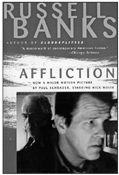
â
New York Times Book Review
HAMILTON STARK
Hamilton Stark is a New Hampshire pipe fitter and the sole inhabitant of the house from which he evicted his own mother. He is the villain of five marriages and the father of a daughter so obsessed that she has been writing a book about him for years. Hamilton Stark is a boor, a misanthrope, a handsome man: funny, passionately honest, and a good dancer. The narrator, a middle-aged writer, decides to write about Stark as a hero whose anger and solitude represent passion and wisdom. At the same time that he tells Hamilton Stark's story, he describes the process of writing the novel and the complicated connections between truth and fiction. As Stark slips in and out of focus, maddeningly elusive and fascinatingly complex, this beguiling novel becomes at once a compelling meditation on identity and a thoroughly engaging story of life on the cold edge of New England.
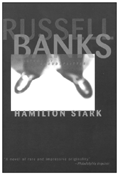
“Banks has skillfully used his repertoire of contemporary techniques to write a novel that is classically Americanâa dark, but sometimes funny, romance with echoes of Poe and Melville.”
â
Washington Post
SUCCESS STORIES: STORIES
In
Success Stories
, an exceptionally varied yet coherent collection, Russell Banks proves himself one of the most astute and forceful writers in America today. “Queen for a Day,” “Success Story,” and “Adultery” trace the fortunes of the Painter family in their pursuit of and retreat from the American dream. Banks also explores the ethos of rampant materialism in a group of contemporary moral fables. “The Fish” is an evocative parable of faith and greed set in a Southeast Asian village, “The Gully” tells of the profitability of violence and the ironies of upward mobility in a Latin American shantytown, and “Children's Story” explores the repressed rage that boils beneath the surface of relationships between parents and children and between citizens of the first and third worlds.
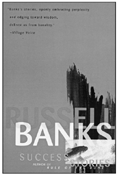
“Each story is uncommonly good ⦠surprising, lively writing and believably human characters⦠Banks has a terrific eye, mordant yet affectionate, for the bric-a-brac and the pathos of the American dream.”
â
Washington Post Book World
THE BOOK OF JAMAICA
In
The Book of Jamaica
, Russell Banks explores the complexities of political life in the Caribbean and its ever-present racial conflicts. His narrator, a thirty-five-year-old college professor from New Hampshire, goes to Jamaica to write a novel and soon becomes embroiled in the struggles between whites and blacks. He is especially interested in an ancient tribe called the Maroons, descendants of the Ashanti, who had been enslaved by the Spanish and then fought the British in a hundred-year war. Despite this history of oppression, the Maroons have managed to maintain a relatively autonomous existence in Jamaica. Partly out of guilt and an intellectual sense of social responsibility, Banks's narrator gets involved in reuniting two clans who have been feuding for generations. Unfortunately, his attempt ends in disaster, and the narrator must deal with his feelings of alienation, isolation, and failure.
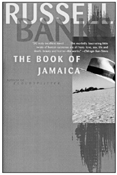
“A compelling novel⦠Banks achieves effects at once beautiful and brutal. A virtuoso performance.”
â
Publishers Weekly
TRAILERPARK
In
Trailerpark
, Russell Banks introduces a colorful cast of characters at the Granite State Trailerpark, where Flora, in number 11, keeps more than a hundred guinea pigs and screams at people to stay away from her babies; Claudel, in number 5, thinks he is lucky until his wife burns down their trailer and runs off with Howie Leeke; and Noni, in number 7, has telephone conversations with Jesus and tells the police about them. In this series of related short stories, Russell Banks offers gripping, realistic portrayals of individual Americans and paints a portrait of New England life that is at once dark, witty, and revealing.
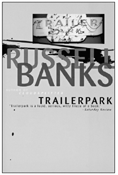
“Mesmerizing⦠There are times when Banks's prose fairly dazzles.”
â
Publishers Weekly
THE RELATION OF MY IMPRISONMENT
The Relation of My Imprisonment
is a work of fiction utilizing a form invented in the seventeenth century by imprisoned Puritan divines. Designed to be exemplary, works of this type were aimed at brethren outside the prison walls and functioned primarily as figurative dramatizations of the tests of faith all true believers must endure. These “relations,” framed by scripture and by a sermon explicating the text, were usually read aloud in weekly or monthly installments during religious services. Utterly sincere and detailed accounts of suffering, they were nonetheless highly artificial. To use the form self-consciously, as Russell Banks has done, is not to parody it so much as to argue good-humoredly with the mind it embodies, to explore and, if possible, to map the limits of that mind, the more intelligently to love it.
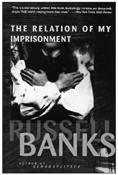
“This is a marvelously written little book, fascinatingly intricate, yet deceptively simple. Well worth reading more than once.”
â
New York Times Book Review
FAMILY LIFE
Family Life
, Russell Banks's first novel, transforms the dramas of domesticity into the story of a royal family in a mythical contemporary kingdom. Life inside this kingdom includes the king (dubbed “the Hearty” or “the Bluff”), who squeals angrily as is his wont; the queen, who, while pondering the mirror in her chambers, decides to write a book; three adolescent princes who are, respectively, a superb wrestler, a fanatical sports car driver, and a sullen drunk. Then there are the mysterious Green Man with a thing for princes; the Loon, who lives in a tree house designed by Christopher Wren; and a whole slew of murders, mayhem, coups, debauches, world tours, and love and loss and laughter.
